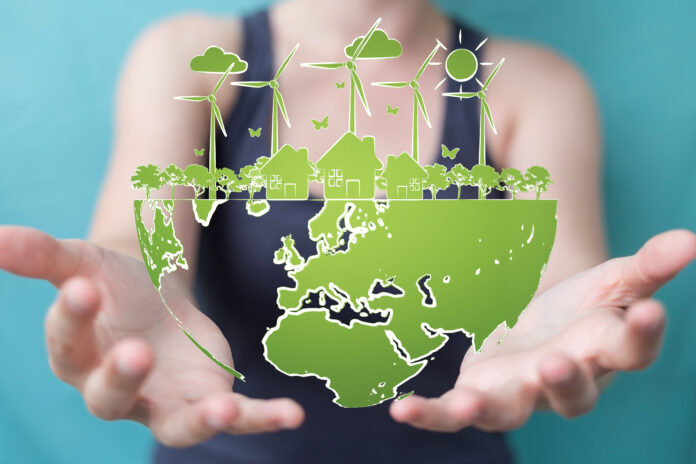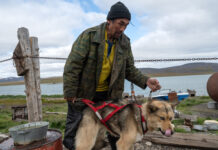One of the greatest and most devastating crises of this current generation – climate change, is happening much quicker than we feared. According to the National Oceanic and Atmospheric Administration (NOAA), over the last two decades, Earth’s temperature has risen by two-thirds of a degree, and the carbon dioxide in the atmosphere has risen to its highest level in over 3.6 million years.
Glaciers have shrunk; droughts and heatwaves are becoming more intense; sea levels are fast rising. Experts say that the Arctic Ocean may be ice-free by 2035. Slowly but surely, we have reached a stage in humanity where climate change is bringing the world dangerously close to irreversible change, and something must be done to stop it.
At the Temasek Shophouse Conversations organized by Temasek Foundation on 9 April 2021, expert panelists from the government, corporate, finance, and environmental sectors took center stage to discuss and share insights on this issue.
 Titled “Climate Action” and themed “Leadership in a Sustainability Journey”, the conversation featured keynote speeches from prominent government officials such as Minister Siti Nurbaya Bakar from the Ministry of Environment and Forestry, Republic of Indonesia, and Minister Desmond Lee from the Ministry of National Development, Singapore.
Titled “Climate Action” and themed “Leadership in a Sustainability Journey”, the conversation featured keynote speeches from prominent government officials such as Minister Siti Nurbaya Bakar from the Ministry of Environment and Forestry, Republic of Indonesia, and Minister Desmond Lee from the Ministry of National Development, Singapore.
The virtual event is the second of the Temasek Shophouse Conversations series which aims to bring leaders of the public, private, and community sectors together to discuss multi-sector collaboration and propel actions to address societal and environmental challenges to achieve a common good, in the region and globally.
“To establish a trust-based society is to create a climate of trust. But that’s not an easy thing to say, so you need to attack the problem from so many angles for it to be solved. Not instantly. But what you can do is create a small snowball and get that rolling.” – Mr Sarwono Kusumaatmadja, Chairman of the Advisory Board for Climate Change Policies, Indonesia
Professor James Gustave Speth once said, “There are three problems that are very difficult to solve in climate change. The first is greed, the second is ignorance and the third is apathy.” Climate change is a complex and multifaceted challenge, with so many layers to unpack, and so much we have yet to understand. No one country can solve this complex challenge on its own and it has now become evident that cross-border collaboration is imperative in achieving a sustainable future.
This is the time, for not just countries, but for corporations and non-profits to start working together, and be open and committed to sharing knowledge, expertise, and best-case practices. Only then, are we able to truly come together to develop and execute conservation solutions that can put a stop to climate change.
According to Dr Michael Vatikiotis, Asia Director for the Centre for Humanitarian Dialogue, one pertinent issue associated with climate change is the impact on human conflict.

As the Earth’s temperature continues to rise, communities that were once living in densely populated and cultivated areas are now being forced to move to regions that have cooler and temperate climates. For example, the migration trend was that people will emigrate from China to Southeast Asia in pursuit of better economic opportunities, however, with climate change, there is a shift and reversal of migration patterns.
According to a report by ActionAid International and Climate Action Network South Asia titled ‘Costs of climate inaction: displacement and distress migration’, catastrophic natural disasters have left villages along coastlines completely swallowed up, while other areas have been hit by such severe droughts that farmers are forced to leave their livelihoods. This has resulted in more than 18 million people having to migrate within South Asian countries. Researchers fear that if global warming continues down this current path, we could see those numbers triple by 2050.
Leadership in a Time of Urgency
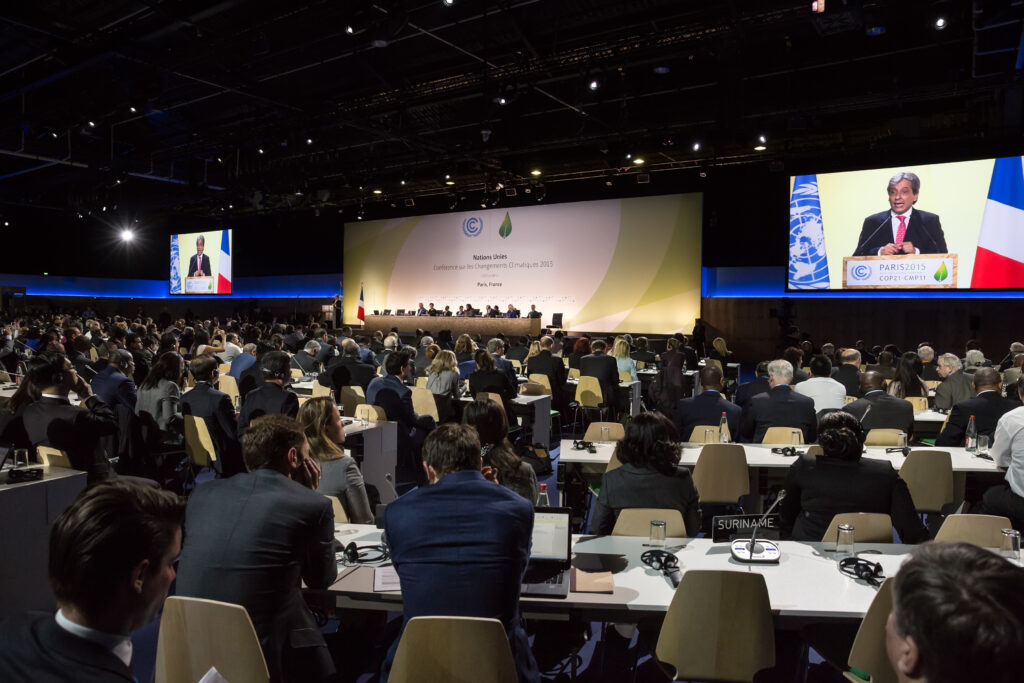
The world understands the urgency of climate change which spares no country from its effects. This global crisis no longer just impacts our immediate environment; it is also threatening national economies and human lives.
“The time we have on our hands right now is important to start taking action and sharing ideas. We have no choice and no recourse, but to face these threats head on and solve it successfully” – Mr Sarwono Kusumaatmadja, Chairman of the Advisory Board for Climate Change Policies, Indonesia
Climate action is a global agenda, and it is one that can unite people, governments, Non-Government Organisations (NGOs), and the private sector. To understand this urgency is to realize that concrete actions and measurements are needed. The world requires partnership and collaboration across different sectors, bringing together different strengths and expertise.
During the panel discussion titled Leadership in a Sustainability Journey: Our Future – How, Why and When, a panel of experts came together to share their thoughts and plans on how we can start combatting this global crisis – emphasizing the importance of working together as one cohesive team.

Dr Andrew Steer, the previous President and Chief Executive of World Resources Institute, who has been actively involved in climate action shared that more than 110 countries (according to the Energy & Climate Intelligence Unit) have pledged to get to Net Zero emissions. Alongside that, the “Race to Zero” campaign led by the UNFCCC Champions for Climate Action mobilizes a coalition of leading net zero initiatives, representing 708 cities, 23 regions, 2,162 businesses, 127 of the biggest investors, and 571 Higher Education Institutions – joining 120 countries in the largest ever alliance, the Climate Ambition Alliance, that is committed to achieving net-zero carbon emissions by 2050.
Many leaders around the world are now stepping up and putting in place policies and regulations to ensure that the commitments made during the Paris Agreement, are upheld. These governments must also commit to analyzing and monitoring the progress in their countries.
Singapore, Indonesia, and the Netherlands are some of the nations that have set in place concrete actions. Singapore for instance, revealed the Singapore Green Plan 2030 in February of this year and the Singapore Green Building Masterplan in March which charts Singapore’s course in sustainable development and tackling climate change for the next decade.
Indonesia is striving to become more sustainable through its climate change policies. “Our climate actions are aimed to strengthen climate adaptation and mitigation measures simultaneously and on an even footing so as to achieve climate resilience,” said Dr Siti Nurbaya Bakar, Minister of Environment and Forestry, Indonesia.
This is evident in one of the country’s biggest pushes, in the area of mangrove restoration. Mangroves, known as ‘supermarkets of the sea’, are crucial to nature and play an important role in combating climate change by pulling massive amounts of greenhouse gases from the atmosphere and storing them in their soil. However, today, mangroves across the world are fast disappearing. 50% of mangroves worldwide have been lost and only 7% are under protection. This is the hard truth and one that is especially true for Indonesia.
To address the urgency of mangrove preservation, the Yayasan Konservasi Alam Nusantara (YKAN) works closely with the Indonesian government and its key stakeholders to protect and restore mangroves in Indonesia. YKAN is now looking towards forging an alliance called the Mangrove Ecosystem Restoration Alliance or MERA, a multi-stakeholder platform to protect and restore mangroves to reduce the vulnerability of coastal communities, protect biodiversity, and contribute to climate change mitigation and adaptation.
“I urge everyone to take part in protecting and restoring mangroves. We often hear the phrase “Think Globally, Act Locally” – each of us should continue caring for the environment, greening our lifestyle, speaking up for nature and taking action in our own communities and cities.” – Dr Herlina Hartanto, Executive Director, Yayasan Konservasi Alam Nusantara
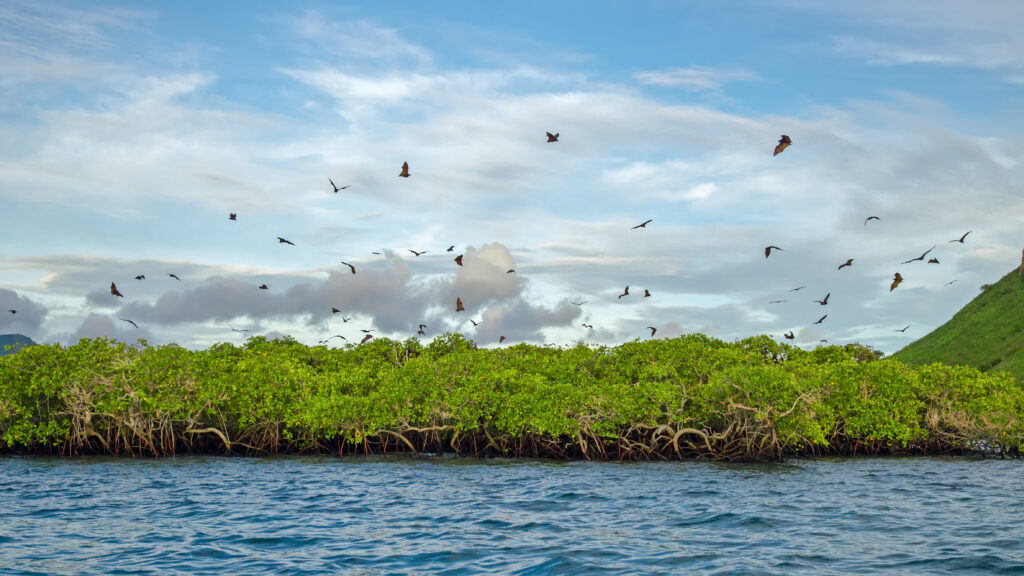
The Netherlands is working towards doing much more in the sphere of renewables and especially in renewable energy, aiming to achieve a 100% carbon-free economy by 2050. One of the world’s leaders in this realm, the country is transitioning to a sustainable energy system, working towards reducing greenhouse gases by some 55% by 2030 alone, and investing in R&D to develop new technologies to reduce energy consumption.
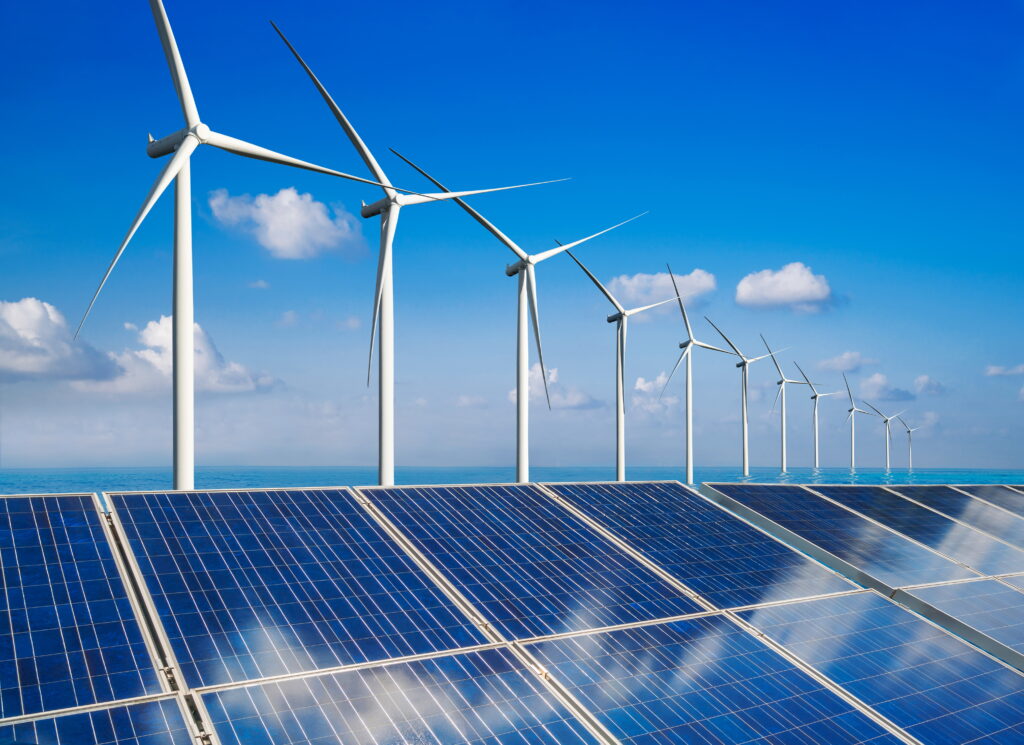
Achieving a green economy has its challenges. Climate change is no longer the sole responsibility of governments; support needs to come from the private sector as well. As we take the steps towards combating this climate emergency, greater awareness, and attitudes towards the world’s environmental, social and governance (ESG) challenges are changing, and sustainable financing is growing in importance.
It is now necessary to start financing and investing in green and low carbon activities. Dr Ma Jun, Chairman of China’s Green Finance Committee Banking, shared that the financial sector must be innovative in tailor-making their products for different green finance projects and deciding how to best support and meet the increasing demands of the green economy.
The financial sector is the key lever in influencing sustainable outcomes and has an important role to play. With their support and capabilities, we can promote economic and social development, redefining and supporting businesses in the transition from exploiting nature to restoring it.
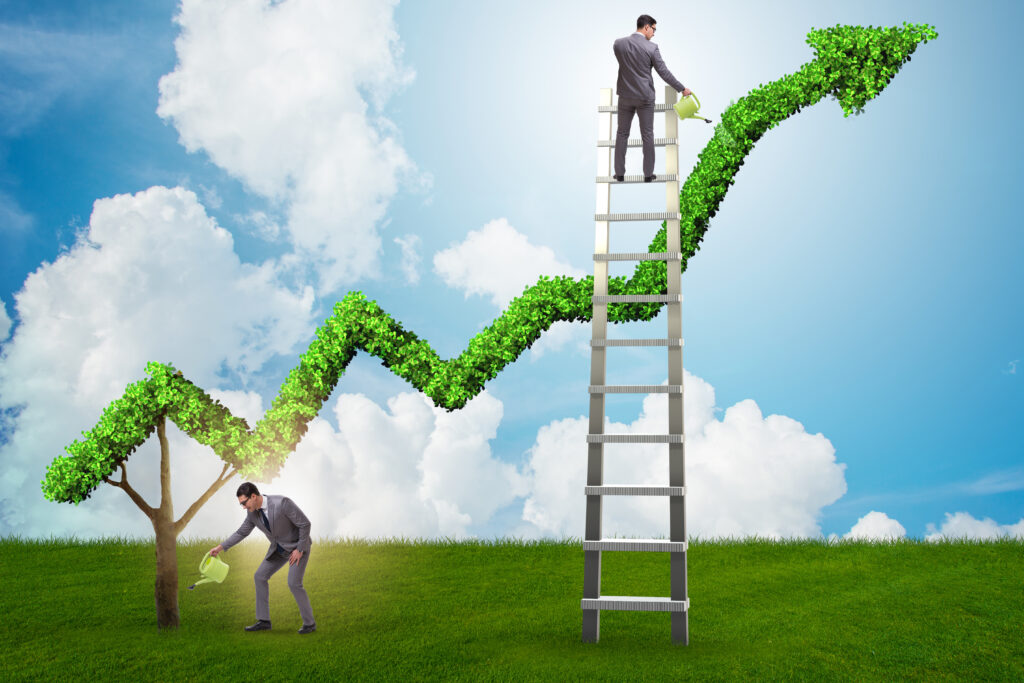
A World for the Next Generation
As our world continues to develop, our governments, organizations, and NGOs are becoming more creative and innovative in the ways they adapt and tackle climate change. To constantly stay ahead in our goals and ambitions, we must continue to rethink, redesign, and reinvent.
“Don’t lay the burden on future generations. We have to invest now for tomorrow, and we have to do it now; we have to be very concrete and specific.” – Prof Jan Peter Balkenende, Former Prime Minister of the Netherlands
Businesses and governments need to end short-termism and focus on the goals of the future, finding the right balance between economy and society. We also need to start bringing stakeholder capitalism into discussions.
Stakeholder capitalism is the notion that a firm focuses on meeting the needs of all its stakeholders which includes employees, partners, the community, and the society. A term that was proposed by Klaus Schwab, the founder and executive chairman of the World Economic Forum (WEF), stakeholder capitalism has been around for over half a century, but up until today was never seen as a solution to our climate emergency.
By realizing that this concept represents a more socially and environmentally conscious version of our current economic system, we can finally come up with real solutions to this ecological crisis, and usher in a more inclusive and planet-forward future. Today, dozens of the world’s largest companies have pledged to use a uniform set of “Stakeholder Capitalism Metrics” in their disclosures, to allow for a more streamlined and standardized reporting on environmental, social, and governance topics.
Power of the Youth
In today’s situation, it is no secret that youth have the power to make world leaders think more deeply about climate action. Young people are now demanding change and action because if we fail to combat the crisis of today, the world we leave behind will fall on the shoulders of the future generation.
“Leadership from young people deserves huge credit. We’ve never seen the passion that exists and that has had huge impact in Europe, the United States and increasingly, in Asia as well.” – Dr Andrew Steer, Former President and Chief Executive of World Resources Institute
Take Melati Wijsen for example. In 2013 at the age of just 12, alongside her 10-year-old sister, she founded the Bye Bye Plastic Bags movement and pushed to ban single-use plastic bags, straws, and styrofoam in Bali, Indonesia. And in 2019, she succeeded.

Yet that was just the start of her journey. Since then she has gone on to gather the voices of young people from across the world, to work together and put an end to the use of plastics. She also founded YOUTHTOPIA, a worldwide platform where youths come together to connect and generate ideas and solutions that can benefit the environment and humanity. Through the platform, she empowers youth and communities, calling for people of power to invite young people to climate action discussions and include them in the creation of environmental regulations.
“Us kids may only be 25% of the world’s population, but we are 100% of the future, and that starts today.” – Melati Wijsen, Founder of Bye Bye Plastic Bags and YOUTHTOPIA
Achieving the Future that We Want to See
We may not know what the future holds, but what we do know is that we need to start collaborating and discussing. When world leaders can convene, share knowledge, and discuss climate action plans, we can make things happen.
This is the decisive decade.
By working towards one common goal, we still have a fighting chance towards overcoming one of the greatest crises known to mankind, and ultimately, create a cleaner, greener, and healthier world.
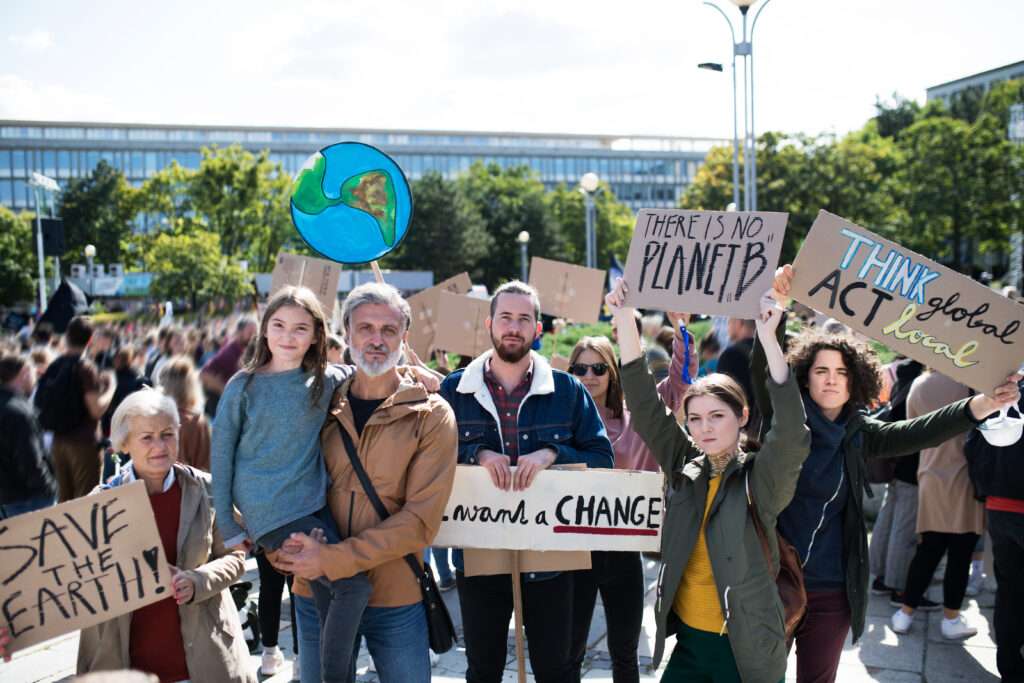
About Temasek Shophouse Conversations
Temasek Shophouse Conversations, launched in 2021, is a series of hybrid events that brings leaders from the public, private, and community sectors together to forge multi-sector collaboration. The conversations seek to galvanize and propel communities to take action for the common good in the region and the world. The theme for the inaugural series is “Do Good Together”. The first in the series held in January 2021 focused on rallying, socializing, and codifying lessons learnt from COVID-19 in preparation for Disease X (the next global pandemic).
Find out more: https://www.philanthropyxchange.sg/


